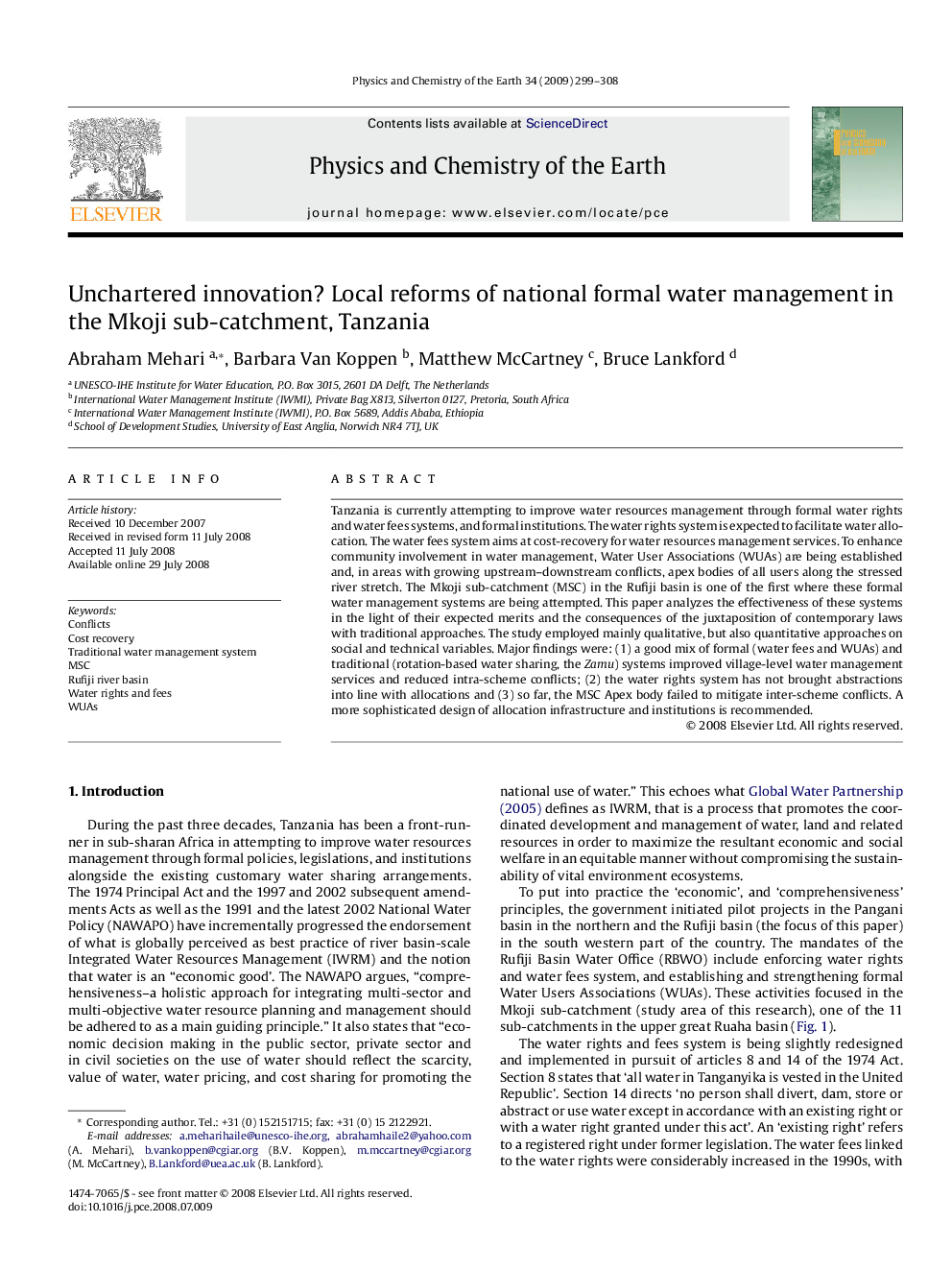| Article ID | Journal | Published Year | Pages | File Type |
|---|---|---|---|---|
| 4721569 | Physics and Chemistry of the Earth, Parts A/B/C | 2009 | 10 Pages |
Tanzania is currently attempting to improve water resources management through formal water rights and water fees systems, and formal institutions. The water rights system is expected to facilitate water allocation. The water fees system aims at cost-recovery for water resources management services. To enhance community involvement in water management, Water User Associations (WUAs) are being established and, in areas with growing upstream–downstream conflicts, apex bodies of all users along the stressed river stretch. The Mkoji sub-catchment (MSC) in the Rufiji basin is one of the first where these formal water management systems are being attempted. This paper analyzes the effectiveness of these systems in the light of their expected merits and the consequences of the juxtaposition of contemporary laws with traditional approaches. The study employed mainly qualitative, but also quantitative approaches on social and technical variables. Major findings were: (1) a good mix of formal (water fees and WUAs) and traditional (rotation-based water sharing, the Zamu) systems improved village-level water management services and reduced intra-scheme conflicts; (2) the water rights system has not brought abstractions into line with allocations and (3) so far, the MSC Apex body failed to mitigate inter-scheme conflicts. A more sophisticated design of allocation infrastructure and institutions is recommended.
